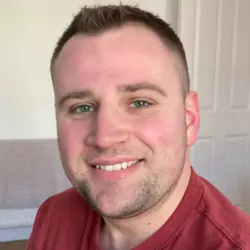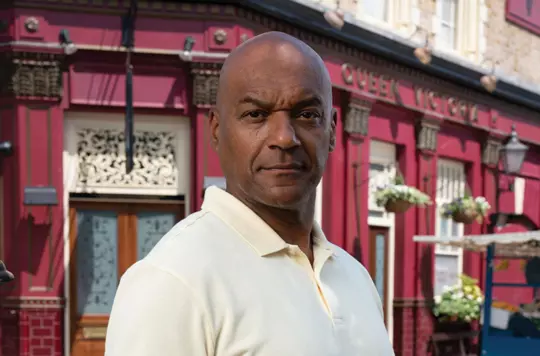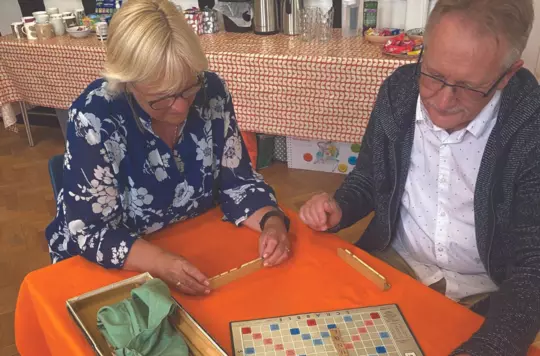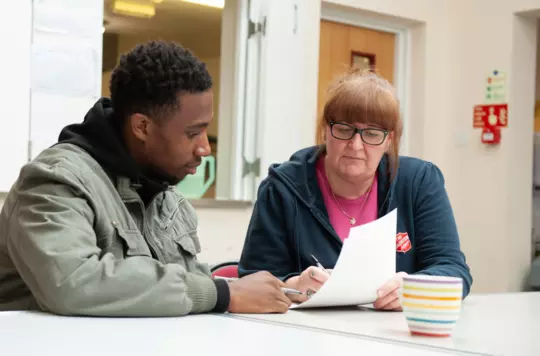28 September 2023
‘Everybody’s equal on the pitch’
George Tanton

Ahead of kick-off, George Tanton discovers the life-changing impact of the Army’s Partnership Trophy.
Now in its 12th year, the Partnership Trophy is the UKI Territory’s annual football tournament for its Lifehouses. Run in collaboration with the Salvation Army Housing Association (saha), the Homelessness Services Unit (HSU) see the event as an opportunity to grow the confidence and self-esteem of its service users by implementing the unifying love for the beautiful game. Teams train and compete in local leagues throughout the year, providing focus and camaraderie. The tournament is the pinnacle of their commitment to the Lifehouse team.
Since its inception in 2010, the tournament has received widespread support and recognition from the football community. In recent years, the tournament has been graced by Spanish international Juan Mata, former Arsenal players Paul Merson and Tony Adams, ex-Argentina international and Sunderland AFC player Julio Arca, and former England goalkeeper Peter Shilton. Taking place in Manchester, the tournament is sponsored by the Guardiola Sala Foundation, a humanitarian charity set up by Manchester City manager Pep Guardiola and his family. In last year’s tournament, Pep’s on-field rival, Manchester United manager Erik ten Hag, made an appearance to support the cause.
For the players that take part, it is an opportunity to shake off their perceived identity as someone who is vulnerable. Whether they are a refugee or someone experiencing homelessness or living with addiction, the tournament allows them to assume a positive new identity as a footballer and a team player, and not just as someone labelled a rough sleeper or addict.
Amber Sylvester, Development Manager for HSU, asserts that the tournament was intended to change people’s notions of homelessness.
‘It is an opportunity for individuals in our services to see themselves as so much more than their housing situation,’ she explains. ‘Homelessness can dominate how they become known. So the tournament was founded to celebrate them for their skills instead, showing that they are so much more than just homeless.’
Similarly, Director of Homeless Services Nick Redmore credits the tournament as a vehicle for readdressing unhelpful stereotypes that are typically associated with those experiencing homelessness.
‘If they are sleeping rough on the street, they are much more likely to be attacked, rather than them doing the attacking,’ he explains. ‘The general thinking is “let’s be afraid of the rough sleeper” – who aggressively begs and demands you for money.’
Nick wants people to see past this negative stereotype: ‘They are someone who’s actually got no food, nowhere to stay, has significant health needs and is at their wits’ end and potentially making attempts at taking their own life.’
While winning silverware is one benefit of taking part, the ultimate aim of the tournament is to help rebuild lives after homelessness. The tournament can provide a sense of achievement. While not every team will be successful as the overall champions, every participant receives a medal and has opportunities for photographs with the celebrity guests. David Blower, partnership manager at saha, explains that the experience in previous years has been life-changing for participants.
‘When you speak to them after the tournament, a lot of individuals say that, a year or so ago, they would never have dreamt of meeting Pep Guardiola, being in a football team or having such a good day out,’ he says. ‘We want to give them the opportunity to see that, actually, things can change. Small steps, such as getting involved in a football tournament, may seem nothing special but actually, for a lot of people, it is a big step. It may lead to bigger steps in other areas of their life as they see that change can happen and they’re not alone.’
Nathan Slinn, Assistant Territorial Director for HSU (South), who in previous years has participated as part of a regional managers’ team, also heralds the benefits of the tournament for those taking part.
‘It provides a sense of worth and an opportunity to be part of a team and play an equal part on the football pitch,’ he explains. ‘It can do so much in terms of self-esteem and in terms of health and wellbeing.’
Nathan considers the long-term benefits of participation: ‘Does the tournament give them the confidence to go out into the world and look for jobs? Or break their addictions and pick themselves out of that situation? It could be the trigger that people need to change their circumstances!’ Continuing, Nathan confidently asserts: ‘I think everyone that attends comes away in a better place than when they arrived.’
This point is affirmed by Christine Ritchie, service manager at Swan Lodge Lifehouse – which has produced successful teams for the tournament from the beginning.
‘I have seen a huge change in individuals who attend the training sessions and attend the Partnership Trophy,’ she explains. ‘They are more confident and their fitness and wellbeing levels are increased. I have seen individual lives changed by football.’
Football, like so many other sports, can bring people together from across borders and societal divides. It can help build an all-inclusive culture of fellowship.
‘Everybody is equal on the pitch,’ asserts Nathan. ‘Football is a universal language.’
Written by

George Tanton
Editorial Assistant
Discover more

EastEnders star Colin Salmon explains how playing the cornet in a Salvation Army band paved the way for a career on screen.

George Tanton finds out how Harwich Wellbeing Lounge is caring for its community.

